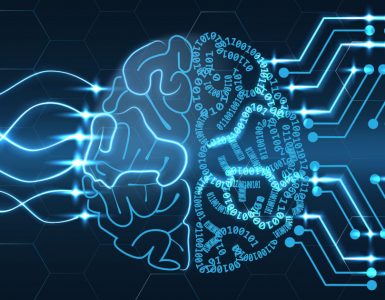A few years back, an article in HBR proclaimed Data Scientist: The Sexiest Job of the 21st Century. Well, not much has changed in the years that have passed. According to Glassdoor, the average base pay of a Data Scientist in the US is $113k per annum with several job openings in Fortune 500 companies for those with the necessary knowledge and skill-set.
But what is a Data Scientist, and what does the role entail?
Generally speaking, a data scientist is someone who knows how to interpret data and extract meaning from it using tools and technologies like statistics, machine learning, and analytical thinking. Most popular analytics tools in the industry include R Programming, Apache Spark, Excel, RapidMiner. and Tableau Public.
The Importance of Data Scientists in Industry 4.0
Today, organizations are sitting on growing amounts of disparate data which can be converted into actionable insights for a measurable impact on revenue and customer satisfaction. That’s also the reason why most companies wish to hire experienced Data Scientists to collect, clean, and analyze data for meaningful insights that form the backbone of profitable business decisions.
Data Scientist Role & Responsibilities
Data scientists work in close cooperation with business stakeholders to understand their goals and help them achieve those goals with the help of data. Their key responsibilities include collecting and cleaning data and designing data modelling processes to extract meaningful insights for business needs. Data scientists must also be able to communicate their ideas with peers and their management in easily understandable language, devoid of technical jargon.
Typical steps in the process include:
- Gathering data
- Processing and cleaning the data
- Data storage and integration
- Exploratory data analysis
- Choosing primary modelling techniques or algorithms
- Crunching the data using appropriate algorithms or technology
- Measure, improve, and present the results to stakeholders for feedback
- Repeat the process for getting new insights and thus solving business problems or exploring new opportunities
As you can see, the role of a Data Scientist is not just limited to numbers and technology but also requires business communication skills to help organizations drive maximum benefit from the insights drawn by them. For example, Data Scientists can analyze the shopping behaviour of thousands of customers to build churn prediction models using machine learning to improve customer retention.
The Royal Bank of Scotland uses numbers and patterns to solve customer issues. The financial institution uses real-time analytics to track complaints, which helps them understand various issues and predict customer expectations or problems to solve them pro-actively.
Besides banking, other sectors are also embracing data science in a big way. Many construction companies are now using data science and analytics to track the average time needed to complete tasks as well as material-based expenses and other related factors.
For transportation and logistics, Data Scientists can use the data about past journeys to design efficient routes, which is crucial for timely deliveries. Transport for London already uses statistical data to map user journeys and manage unexpected circumstances.
Data Scientists are even required in the modern education system that is pivoting to digital at a fast rate. Here, data science and analytics can be used to build robust learning management systems that can propel personalized learning by tracking student behaviour and progress.
Top Skills Required For A Data Scientist
The job of a Data Scientist is multi-faceted. Data Scientists are not only responsible for collecting, filtering, and analyzing data by developing accurate machine learning models and continuous testing, but also for communicating the results in conventional business speak to executives for organization-wide action.
An article by KDnuggets rounded up the daily routine of a few Data Scientists, which includes tasks like training, data modelling, testing, relationship building across departments to identify core business issues to resolve, and also catching up with the latest research and social media posts on emerging technologies to stay up-to-date. The day usually starts with a team meeting to bring everybody on the same page.
As you can gauge, the role of a Data Scientist is as exciting as it is demanding. It requires technical skills and qualifications, as well as various non-technical skills to excel in this domain. Technical skills include proficiency in programming languages like R and Python, expert-knowledge of data visualization software like Tableau, Domo, MATLAB, Sap Analytics Cloud, etc. In addition, Data Scientists are trained in Big Data Analytics tools like Apache Hadoop, Cassandra, and MongoDB.
Besides technical training, Data Scientists must possess excellent communication skills, business acumen and logical thinking to transcend the barriers between science and business. Today, most companies rely on data science for actionable insights to solve business problems and scale optimally. Therefore, Data Scientists must understand the industry in which they operate to use their skills for business growth.
Software engineers often work with multiple teams and clients in an organization, which means they already possess good business acumen and soft skills required for the Data Scientist role. As both software engineering and Data Science need programming skills, software engineers can easily switch to the role after completing a part-time or full-time course in Data Science from an established university.
Final Thoughts
Of course, both the functions are equally lucrative, but if you enjoy dabbling in data and prefer a senior management role in the future, a switch to Data Science is a good idea. Besides upskilling with relevant courses, you can also power-up your job search instantly by signing up on Talent 500 – a talent discovery platform to get placed with Fortune 500 companies and top MNCs globally.






Add comment